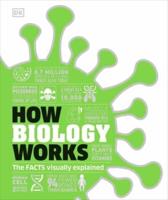Publisher's Synopsis
DNA tumor viruses have long been useful experimental models of carcinogenesis and have elucidated several important mechanisms of cell transformation. Re- search in recent years has shown that human tumors have a multifactorial nature and that some DNA tumor viruses may playa key role in their etiology. The aim of this book is to assess our knowledge of DNA tumor viruses by reviewing animal models, mechanisms of transformation, association with human tumors, and possi- bilities of prevention and control by vaccination. Animal models of tumor virology have contributed significantly to our under- standing of the epidemiology and pathogenesis of virus-induced tumors. Bovine papillomaviruses induce papillomas in the intestine of cattle. The papillomas undergo a transition to carcinomas in cows feeding on bracken fern, which pro- duces a toxin with radiomimetic and immunosuppressive functions. This example of cooperation between a virus and chemical carcinogens parallels the cooperative role of human papillomaviruses (HPVs) and herpes simplex virus type 2 (HSV-2) with environmental carcinogens in the pathogenesis of cervical cancer. Likewise, hepatocarcinomas appearing in woodchucks chronically infected by woodchuck hepatitis virus (WIN) provide strong support for the relationship between hepatitis B virus (HBV) infection and human hepatocellular carcinoma. Also, the fact that WIN DNA integrates closely to cellular oncogenes suggests a possible molecular mechanism for the tumorigenesis induced by HBV.












